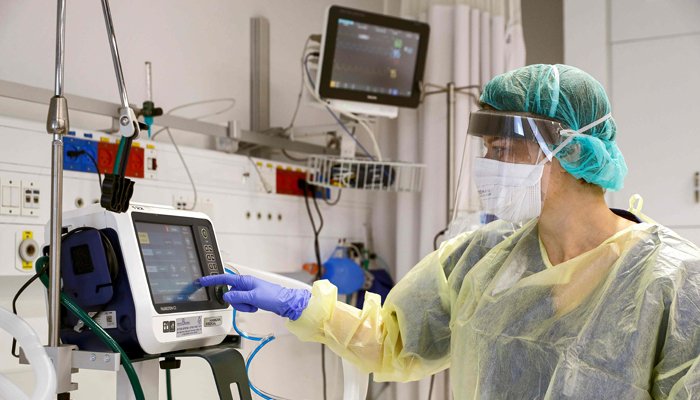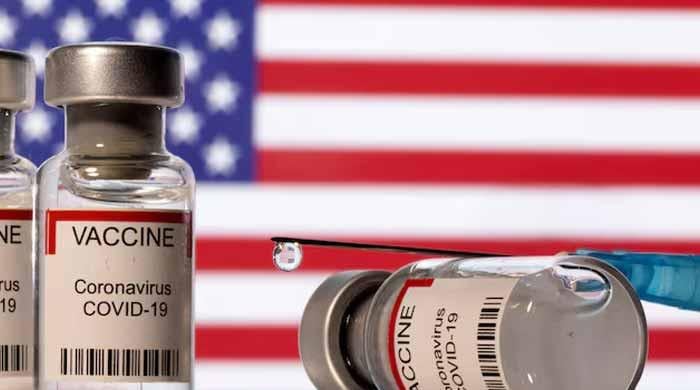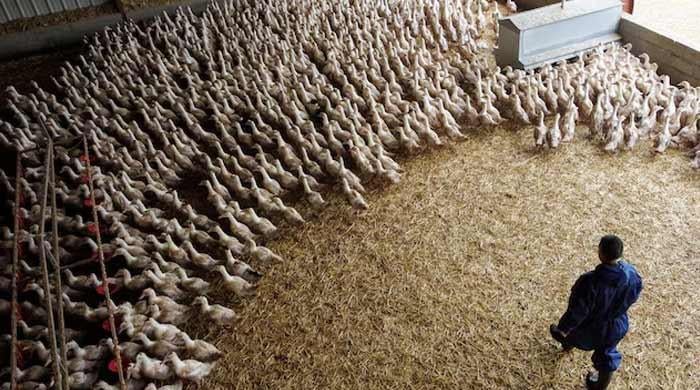The first 3D-printed ventilator prototype in Pakistan could be ready within two weeks
Pakistani volunteers aim to use cutting edge technology to produce affordable ventilators, respiratory valves
March 23, 2020

LAHORE: A group of volunteers from Pakistan, who call themselves Pakistan Against COVID-19 – Volunteers (PAC-V), have announced plans to use cutting edge 3D printing to produce affordable ventilators, respiratory valves and other essential equipment at a large scale.
According to a report in The News, the group of volunteers from across Pakistan had earlier this month come together to develop affordable solutions to combat COVID-19 and manufacture medical equipment using 3D printing technology in the country.
The volunteers are doctors, biomedical professionals, engineers, academics, diaspora, resource mobilisers and other smaller groups, who aim to make use of 3D printing to manufacture ventilators, valves and required equipment for the frontline response to the cornonavirus.
Also read: Experts ask govt to ensure smooth supply of goods in case of lockdown due to coronavirus
The group has announced that the first 3D ventilator prototype will be ready for testing within two weeks. The 3D printing process builds a three-dimensional object from a computer-aided design model (CAF), usually by successively adding material layer by layer, and is also called additive manufacturing.
The group has announced that it is seeking support from the nation to scale up the initiative for a larger impact on the health industry that requires resources and facilitation at different levels of the government.
Also read: Yawar Abbas, 100, marries Noor, 60, to beat coronavirus
Dr Bilal Siddiqui, a PhD, is leading the initiative, and volunteers are concerned about the emerging challenge of the COVID-19 pandemic and its unprecedented stress on the healthcare system of Pakistan.
Lack of medical equipment to cater to the needs of the patients is a major bottleneck as the country prepares to tackle the virus crisis. Medical equipment which is affordable and optimised for conditions in Pakistan is totally missing, according to health experts.
Also read: This Chinese citizen has a message for Pakistanis on the coronavirus pandemic
High costs, logistical issues, manufacturing countries' inability to fulfil export demands due to their own local demands, among other reasons, have made import of the equipment even more difficult.
Bilal led this startup and put things into motion by starting with his students, and reaching out to the academia and the industry. The aim was to develop affordable and replicable solutions for combating COVID-19 challenges.
Also read: Punjab govt's repeated pleas for social distancing fall on deaf ears
The group is growing daily and has over 100 engineers, medical professionals, professors, entrepreneurs and resource mobilisers working tirelessly in various teams to produce solutions at a rapid pace.
The group's active collaboration is currently focused on developing local design and engineering solutions to make available equipment such as low-cost and massively available respiratory ventilators, portable oxygen supplies, face masks and protection screens.
The group is also working to produce respiratory valves, viral media tubes, non-contact thermometers, and retrofitting existing vents to serve multiple patients, as well as arranging for 3D printing farms.
The group members are in touch with the National Disaster Management Authority (NDMA), hospitals, provincial governments and a large number of contributing organisations across the country.
Once the solutions are developed, tested and approved for medical use, they will be deployed across the nation. Arrangements at various levels are underway to make available the funds the group needs for mass manufacturing of the items, reports The News.
Originally published in The News









